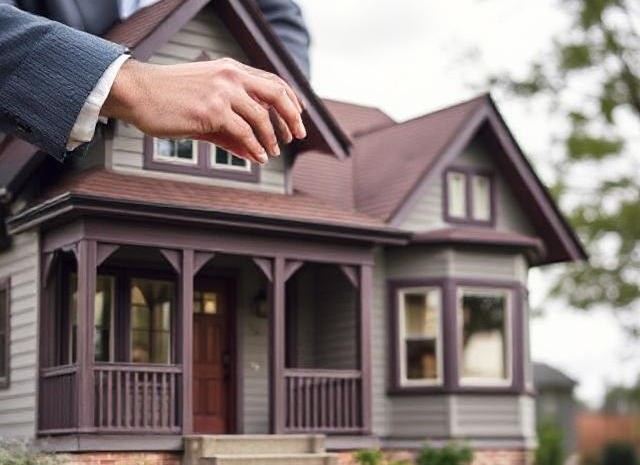
The Importance Of Liability Coverage In Homeowners Insurance
Liability coverage in homeowners insurance is one of the most crucial aspects of a policy, as it protects you financially in case someone is injured on your property or their property is damaged due to your actions (or negligence). It’s an essential safety net that helps cover legal expenses, medical bills, and other costs that may arise from accidents or incidents that occur within your home or on your property.
Here’s why liability coverage is important:
1. Protection Against Lawsuits
If someone is injured on your property or if you or a family member cause damage to someone else’s property, you could be held legally responsible for the incident. Without liability coverage, you would have to pay for legal defense, court costs, and any settlement or judgment out of pocket. Liability coverage helps cover these expenses.
Example:
Imagine a guest trips on your uneven sidewalk and breaks their arm. They may decide to sue you for medical costs and pain and suffering. If you have liability coverage, your insurance would cover the legal expenses and any settlement or damages awarded to the injured person, up to your policy limit.
2. Medical Expenses for Injured Parties
Liability coverage in homeowners insurance can cover medical costs for someone injured on your property, regardless of who is at fault. This is particularly important for guests, family members, or anyone who may be injured accidentally while on your property.
Example:
If a visitor slips on a wet floor and gets injured, liability coverage would help pay their medical bills (like hospital visits or doctor’s appointments), preventing you from being personally responsible for those expenses.
3. Coverage for Property Damage
Liability coverage can also protect you if you accidentally damage someone else’s property. This includes incidents where you or a family member causes damage to a neighbor’s fence, car, or landscaping.
Example:
If you accidentally break a neighbor’s window while playing catch in your yard, liability coverage would cover the cost to repair or replace the window, saving you from paying for the damage out of pocket.
4. Legal Defense Costs
If you are sued for an incident that occurs on your property, homeowners insurance with liability coverage will typically cover the costs of your legal defense. This can be incredibly expensive, so having liability protection ensures that you’re not stuck with overwhelming legal bills.
Example:
If a lawsuit is filed against you for an accident that happened on your property, your insurance will pay for an attorney to defend you in court, and any court costs associated with the case.
5. Peace of Mind
Liability coverage provides peace of mind knowing that you’re financially protected in case something goes wrong. Homeownership involves many responsibilities, and accidents can happen. Whether it’s a guest getting hurt or damage to someone else’s property, knowing that you have insurance to cover potential claims can alleviate stress.
6. Guest Injuries and Dog Bites
Liability coverage also typically extends to cover injuries caused by your pets, such as a dog bite. If your dog bites a guest or a neighbor, your homeowners insurance may help cover medical expenses and legal costs related to the bite.
Example:
If your dog bites a neighbor or a delivery person, your homeowners insurance liability coverage would likely pay for their medical treatment and any potential legal fees associated with the incident.
7. Umbrella Policies for Extra Protection
In many cases, homeowners liability coverage has limits, meaning it may only cover a certain amount of damages or legal expenses. If you’re worried about a large claim, you may want to consider an umbrella policy. An umbrella policy is an additional layer of liability coverage that kicks in once your homeowners insurance liability limits are reached, providing extra protection.
Example:
If your liability coverage is $300,000, but a lawsuit results in $500,000 in damages, an umbrella policy can cover the remaining $200,000.
8. What’s Typically Not Covered Under Liability
While liability coverage offers substantial protection, it doesn’t cover everything. Some common exclusions in homeowners insurance liability coverage include:
- Intentional Injuries: If you intentionally harm someone or cause damage, your liability coverage will not apply.
- Business-Related Incidents: If you run a business from home and a customer is injured or their property is damaged, your homeowners insurance liability may not cover the incident. Business insurance may be necessary for these situations.
- Auto Accidents: If you or a family member causes a car accident, that would typically be covered under auto insurance, not homeowners insurance.
9. How Much Liability Coverage Do You Need?
Most standard homeowners insurance policies offer around $100,000 to $300,000 in liability coverage. However, if you have a higher net worth or are concerned about the risk of a larger claim, you may want to increase your liability limits. Some homeowners choose to add more coverage if they have a higher risk of accidents (e.g., a swimming pool, trampoline, or dogs) or valuable assets that they want to protect.
10. Adding Liability Coverage to Your Policy
If you’re unsure whether you have enough liability coverage, it’s a good idea to review your policy with your insurance agent. You can always increase your liability coverage if needed. Many insurers offer personal liability endorsements or riders that add additional coverage for specific risks, such as dog bites or home-based businesses.

